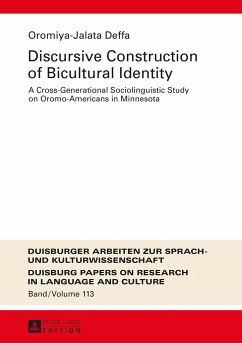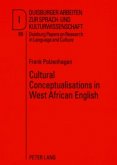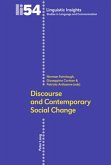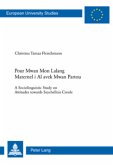The author examines the cultural identity development of Oromo-Americans in Minnesota, an ethnic group originally located within the national borders of Ethiopia. Earlier studies on language and cultural identity have shown that the degree of ethnic orientation of minorities commonly decreases from generation to generation. Yet oppression and a visible minority status were identified as factors delaying the process of de-ethnicization. Given that Oromos fled persecution in Ethiopia and are confronted with the ramifications of a visible minority status in the U.S., it can be expected that they have retained strong ties to their ethnic culture. This study, however, came to a more complex and theory-building result.
Bitte wählen Sie Ihr Anliegen aus.
Rechnungen
Retourenschein anfordern
Bestellstatus
Storno








